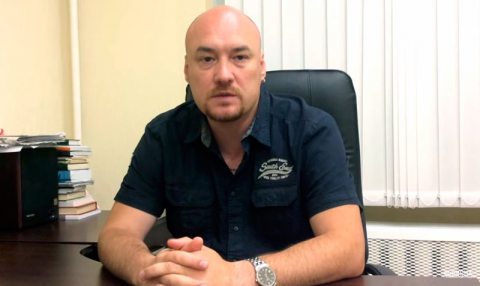Valiantsin Stefanovich: No systemic changes in the field of human rights
On September 28, the OSCE ODIHR Human Dimension Conference in Warsaw hosted a side event with participation of Belarusian non-governmental organizations: the Assembly of Democratic NGOs, the Center for Legal Transformation Lawtrend, as well as campaigns “Human Rights Defenders For Free Elections” and “Right To Choose”.
The general state of civil society in Belarus and the most important problems in this area were covered by a political analyst and lawyer Yury Chavusau.
Volha Smalianka, a representative of the Center for Legal Transformation, focused in her speech on the most significant changes in legislation affecting aspects of the existence of civil society, in particular the reform of the legislation on receiving foreign funds.
Valiantsin Stefanovich, a coordinator of the campaign "Human Rights Defenders for Free Elections", emphasized the general background against which the beginning of the presidential election took place, comparing it to the 2010 presidential election. According to the human rights activist, both campaigns are similar in that the authorities show a softer approach to some visible things like the collection of signatures and the ability to do this on the streets.
“However,” said Stefanovich. “There are some serious and significant differences. Firstly, this year’s election takes place in the context of the new geopolitical situation that affects the situation in Belarus, namely the conflict situation between Russia and Ukraine. Secondly, during the 2010 election, the “soft practices” or liberalization, if it can be called that, began much earlier, around 2008. And the election in 2010 was a continuation of the so-called first wave of liberalization, which suddenly ended on December 19, 2010. This year’s election started against a very unfavorable background: political prisoners were still in prison, media law had been amended, it became possible to block websites, the hunt for freelance journalists was revived. The election started against the backdrop of these negative phenomena, but actually it was not until August that the authorities began to demonstrate the “soft practices”: the persecution of journalists was stopped, there were several pickets in Minsk that were not dispersed and only the organizers were prosecuted without even being detained. No one knows and no one guarantees how long it will last. In reality, we do not observe any systemic changes in the field of human rights. This is the essential difference between the election of 2015 and the 2010 election.”
Valiantsin Stefanovich also focused on the issues of changes to electoral law and the fact that the ODIHR recommendations have not been taken into account, while the changes mainly concerned a ban on boycott, and the systemic problems that were in the electoral process in Belarus remained unresolved.
“Our appeal to the head of the Central Election Commission on the settlement of three important issues for observers remained unanswered. This included counting procedures, namely that the ballots should be counted by one member of the commission with the demonstration of each ballot to the rest of those present, including the observers; it is issuing a copy of the protocol on the results of the voting to the observer, stamped and signed by the commission members; and the third proposal is that the CEC website had information about separate voting results for each individual polling station across the country. But, both the legislation and the practice still remain as they were in the previous elections. Large stages of the election campaign actually remain closed to the observers: this includes the procedure of verification of signatures collected for the nomination of candidates, early voting, lack of detailed clarifications of the counting of votes in the legislation, and the lack of criteria for nominating members to the commissions, and a number of other problems.”
The side event was concluded by an address by representatives of the campaign “Right To Choose” Dzianis Sadouski and Ihar Barysau, who presented their position of the political observation.


